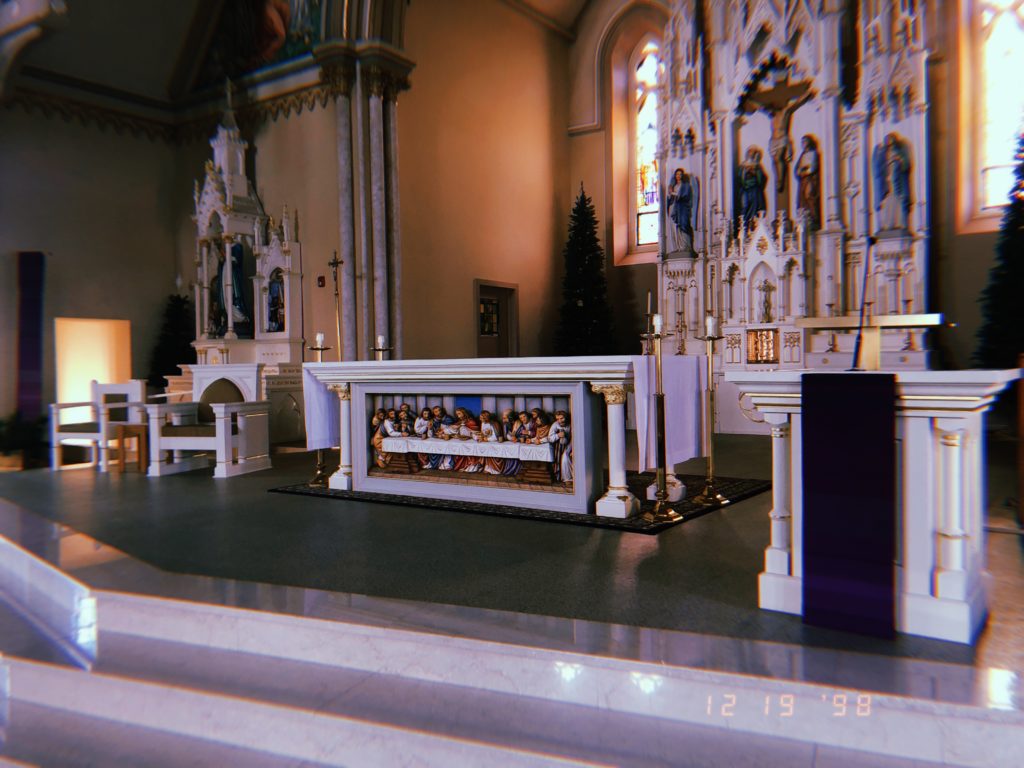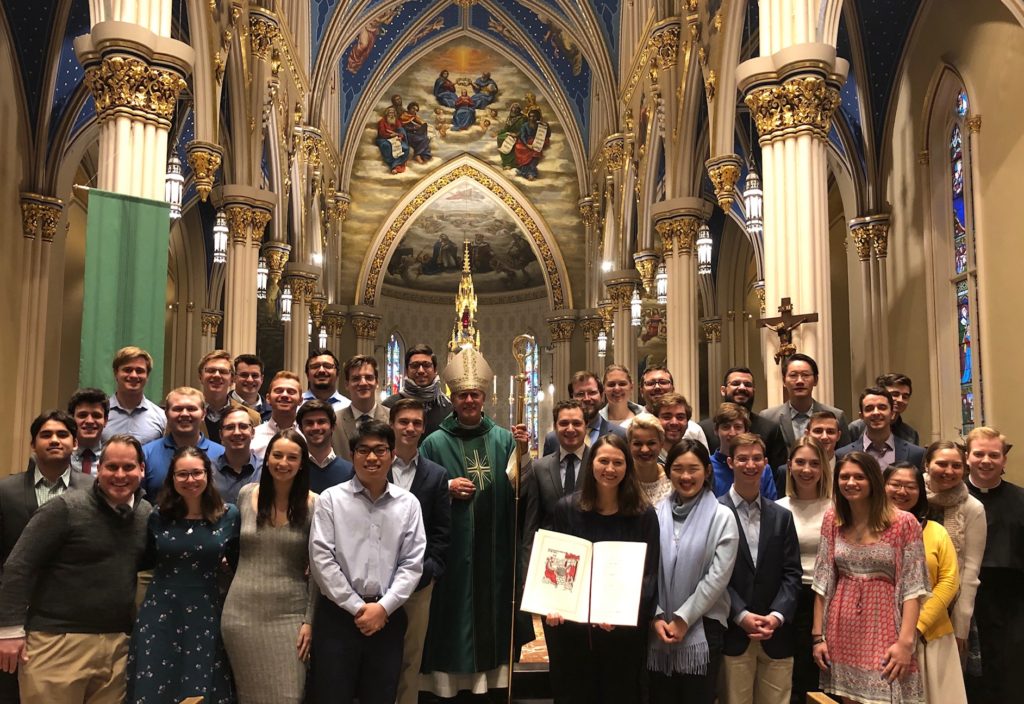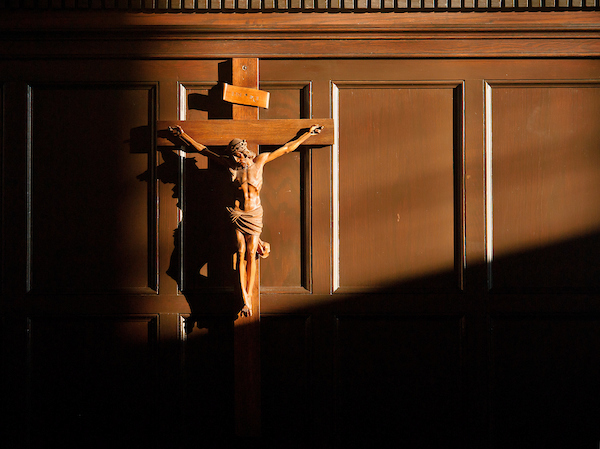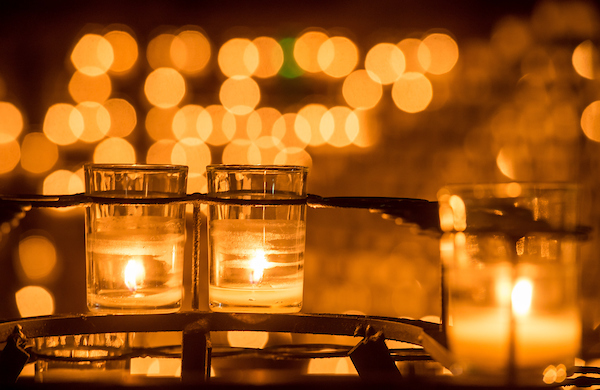Leah Buck, Senior Anchor Intern – Sacramental Preparation
A couple of weeks ago, one of my professors opened class with the question, “What is the difference between eating and having a meal?” After a few minutes of discussion, the class came together and shared the fruits of their conversation and contemplation. We concluded that eating is for sustenance, while a meal is for savoring. Eating may mean passively grabbing a handful of pretzels on the way to class, while a meal implies an intentionality of compiling a plate and sitting down to consume it. Eating can be done in isolation, in a car or at a desk or in a dorm room, but meals are partaken in community. There is something more to a meal than just putting food into our bodies, there is a nourishment of soul that happens around the dinner table.
Jesus knew this truth well. Just look to see how often he dines in the gospels. He gathers with his friends and with his enemies, with his apostles to whom he will entrust the Church to and with the Pharisees who will persecute him. We see him eating breakfast by the sea with his disciples, feeding the crowds that he preached to, and reclining at the table with Martha, Mary, and Lazarus. Scripture never tells us, “Then Jesus grabbed a snack from the drive-through (or whatever the ancient Israel equivalent was) and went on his way.” No, Jesus intentionally gathers to eat and often ties his teaching to his meals. He quite literally builds the Kingdom of God over suppers.
This Thursday, we will celebrate the most significant meal that Jesus ever ate: the Last Supper. The last thing Christ did before entering into his passion was celebrating the Passover feast with his closest friends. As faithful Jews, he and his apostles prepared and ate the meal much as they would have every year of their lives, but at this meal, Jesus did something drastically different. In the midst of their supper, Jesus takes the bread they are sharing and says, “This is my body, given up for you.” The apostles were honestly pretty caught off guard, confused about what Christ was doing in breaking with the Passover rite. But Jesus was very clear: He is the bread of life, and this meal instituted something that would change the whole world, the Eucharist.

The Eucharist is the source and summit of our Catholic faith, the lifespring, the nourishment for all that the Church does. It is Christ made present to his Church every day, under the appearances of bread and wine. This is the most glorious earthly meal that we can ever partake in, the most intentional way that we can ever eat. But, though it is the holiest thing in the entire universe, it is only a prefigurement of the heavenly banquet that is to come.
One of my favorite songs, Gone are the Days by the Gray Havens, sums this dynamic up pretty well. The artist sings: “As I reach for the bread and the wine, for the comfort I’ll find, picture the scene. One day, to the table we’ll come, every daughter and son, finally free.” The Eucharist, the bread and the wine, is our greatest consolation, our greatest comfort. And as we receive it, we join with the whole Church in heaven and on earth around the same table. The eternal banquet in heaven is the same, the place where God is calling every son and daughter to gather, finally free from sin and suffering.
This song takes on a whole new dimension for eleven of my friends who are preparing to receive the Eucharist for the first time in the coming days. They have been preparing through the RCIA process at Notre Dame all year for these Liturgies, when they will be baptized and fully initiated into the Catholic Church. They are picturing their first Communion, where they, for the first time, will approach the Eucharistic table and share in this banquet. They will taste the goodness that the Lord offers, the foretaste of heaven, for the first time. Joining the universal human longing for heaven, they hunger and thirst for the bread of life. But so, so soon, they will get to taste it in the Blessed Sacrament.
The supper that we partake in at Mass is not merely eating. It is active, it is communal, it is soul-nourishing. It points us towards the place that we were each made for, the place where there is always room at the table, heaven. Join me in prayer for the men and women who will soon join us at the Eucharistic table for the first time.


